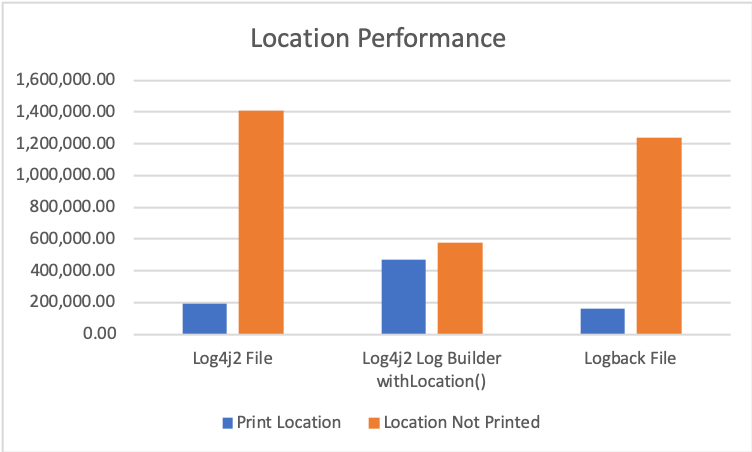Log4j 1 Compatibility in Log4j 2
- Ralph Goers
- Dec 22, 2019
- 3 min read
Log4j 2 introduced many architectural changes from Log4j 1 including:
Components are plugins and use difference interfaces than Log4j 1.
Log4j logs Messages instead of Objects. Because Messages render themselves Log4j 2 does not support Renderers.
Log4j uses a LoggerContext instead of a LoggerRepository.
These changes meant that Log4j 1 Filters, Layouts, and Appenders could not directly be used out of the box in Log4j 2, nor could a Log4j 1 configuration be directly used by Log4j 2. However, staring with the Log4j 2.13.0 release Log4j can now process Log4j 1 configuration files and utilize some Logj4 1 Appenders, Filters and Layouts.
From its earliest releases Log4j 2 provided a Log4j 1 API adapter that allowed applications that coded to the Log4j 1 logging methods to have those calls routed to Log4j 2. This adapter also provided stubs for various Log4j 1 components so that applications that had references to Log4j 1 implementation classes would still compile and run, although those references generally did nothing. Log4j 2.13.0 has extended this support to do the following:
Provide ConfigurationFactories for the Log4j 1 XML and Properties syntax.
Provide bridges from some of the Log4j 1 standard components to Log4j 2 standard components.
Provide adapters to allow some Log4j 1 Appenders, Filters and Layouts to be called when an event is logged.
As an example, when the following Log4j 1 configuration is processed:
<?xml version="1.0" encoding="UTF-8" ?>
<!DOCTYPE log4j:configuration SYSTEM "log4j.dtd">
<log4j:configuration xmlns:log4j="http://jakarta.apache.org/log4j/">
<appender name="console" class="org.apache.log4j.ConsoleAppender">
<param name="Target" value="System.out"/>
<layout class="org.apache.log4j.PatternLayout">
<param name="ConversionPattern" value="%d{yyyy-MM-dd HH:mm:ss} %-5p %c{1}:%L - %m%n" />
</layout>
</appender>
<appender name="A1" class="org.apache.log4j.FileAppender">
<param name="File" value="target/temp.A1" />
<param name="Append" value="false" />
<layout class="org.apache.log4j.PatternLayout">
<param name="ConversionPattern" value="%-5p %c{2} - %m%n"/>
</layout>
</appender>
<appender name="A2" class="org.apache.log4j.FileAppender">
<param name="File" value="target/temp.A2" />
<param name="Append" value="false" />
<layout class="org.apache.log4j.TTCCLayout">
<param name="DateFormat" value="ISO8601" />
</layout>
</appender>
<logger name="org.apache.log4j.xml">
<level value="trace" />
<appender-ref ref="A1" />
</logger>
<root>
<priority value ="trace" />
<appender-ref ref="A1" />
<appender-ref ref="A2" />
</root>
</log4j:configuration>
it will be treated exactly as if this Log4j 2 configuration had been provided:
<Configuration status="ERROR">
<Appenders>
<Console name="console" target="SYSTEM_OUT">
<PatternLayout pattern="%d{yyyy-MM-dd HH:mm:ss} %-5p %c{1}:%L - %m%n"/>
</Console>
<File name="A1" fileName="target/temp.A1" append="false">
<PatternLayout pattern="%-5p %c{2} - %m%n"/>
</File>
<File name="A2" fileName="target/temp.A2" append="false">
<PatternLayout pattern="$d{ISO8601} %p - %m%n"/>
</File>
</Appenders>
<Loggers>
<Logger name="org.apache.log4j.xml" level="trace">
<AppenderRef ref="A1"/>
</Logger>
<Root level="trace">
<AppenderRef ref="A1"/>
<AppenderRef ref="A2"/>
</Root>
</Loggers>
</Configuration>
In other words, Log4j 2 is converting each of the Log4j 1 components to the Log4j 2 component that best matches. This avoids Log4j needing to bring in a lot of Log4j 1 classes but it does have some consequences:
The output from some Log4j 2 Layouts, such as XmlLayout, may not match the output from the Log4j 1 version.
Some components, such as the SocketAppender, do not work the same way in Log4j 2. In particular the SocketAppender can only send log events using Java serialization. Log4j 2 discourages this so the SocketAppender was not included.
The Log4j 2 support for Log4j 1 will also support some custom Appenders, Layouts, and Filters, so long as those classes do not require Log4j 1 classes that have not been included in Log4j 2.
Support for Log4j 1 configurations and components in Log4j 2 is considered to be experimental and is not enabled by default. To cause Log4j to scan for both Log4j 2 and Log4j 1 configuration files a system property of "log4j1.compatibility" must be set to a value of "true". To force Log4j 2 to use a specific Log4j 1 configuration set the "log4j.configuration" system property to the location of the configuration file.

Comments